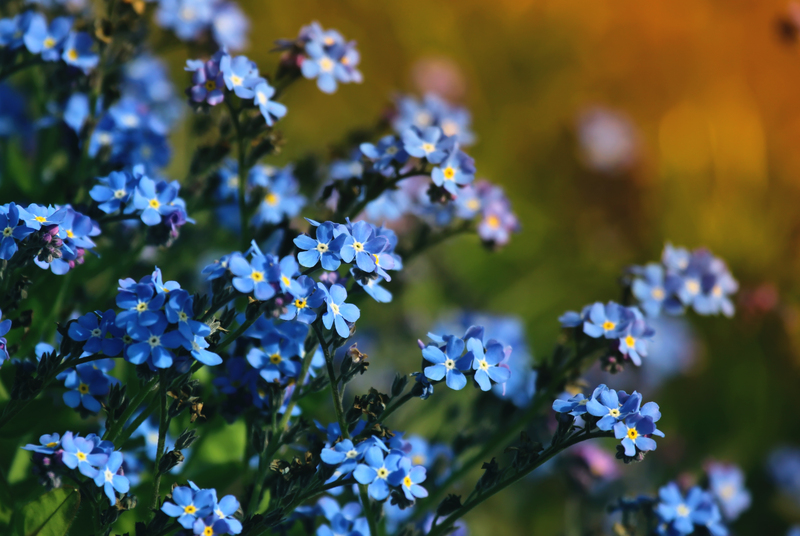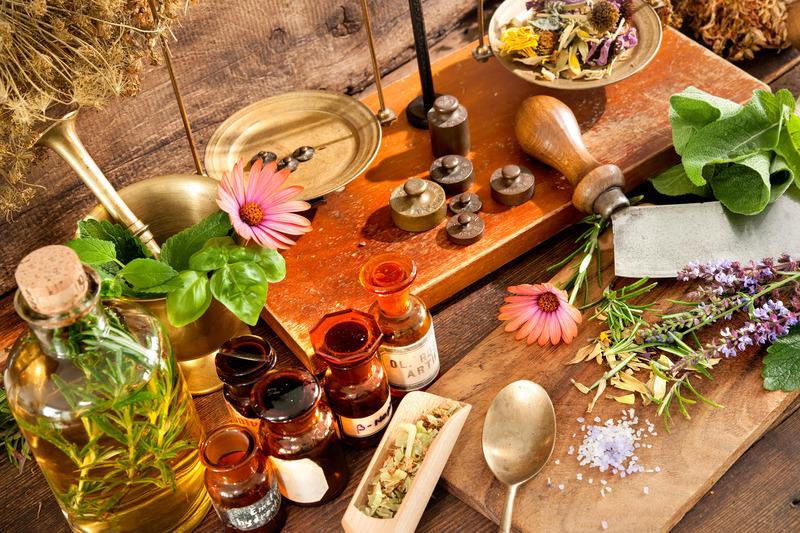A Beginner's Guide to Container Gardening Wonders
Posted on 22/08/2025
A Beginner's Guide to Container Gardening Wonders
Are you eager to cultivate fresh herbs, luscious vegetables, and vibrant flowers but don't have access to a sprawling garden? Container gardening is your ticket to green-thumb glory--right on your balcony, patio, or even a sunny windowsill. This comprehensive guide unlocks the wonders of container gardening for beginners, teaching you everything from choosing the perfect pots to ensuring your plants thrive all season long. Dive into this complete resource designed with accessibility, variety, and ease in mind, and learn how anyone can become a container gardener!
What Is Container Gardening?
Container gardening is the art and science of growing plants in pots, tubs, baskets, or any receptacle that can hold soil, rather than planting directly in the ground. This versatile method enables city dwellers, renters, and even those with limited mobility to experience the wonders of gardening in compact spaces.
- Flexible: Place containers indoors or outdoors
- Portable: Move plants to capture best sunlight or protect from harsh weather
- Creative: Add instant charm, color, and greenery to your living space

Why Start Container Gardening?
Wondering if container gardening is right for you? Here are just a few of the many benefits that make the wonders of container gardening appealing for beginners:
- Space Saving: Perfect for balconies, patios, decks, windowsills, and small yards
- Accessible: Suitable for gardeners with physical limitations
- Control: Tailor soil conditions, exposure, and moisture for each plant
- Minimal Weeding: Containers help reduce weed problems significantly
- Decorative: Create instant visual impact and personal style
- Year-round Options: Move plants indoors when temperatures drop
Choosing the Right Containers for Your Garden
Size Matters: Small vs. Large Planters
Selecting the ideal container sizes for your gardening dreams is crucial. Think about your plant's root system and growth expectations. Small containers suit herbs, annuals, and some succulents, while larger pots are best for vegetables, shrubs, and larger perennials.
- Smaller pots: 6-8 inches diameter; good for mint, basil, or pansies
- Medium pots: 10-14 inches; ideal for tomatoes, peppers, or petunias
- Large containers: 18 inches and up; suitable for mini trees, roses, or layered plantings
Material Marvels: What Are Pots Made Of?
Containers come in all shapes, sizes, and materials. When beginning your journey into container gardening, consider these important options:
- Terracotta: Classic and breathable, but prone to drying out quickly
- Plastic: Lightweight, affordable, retains moisture well
- Ceramic or Glazed: Attractive and versatile, often heavier and pricier
- Wood: Natural look, insulates roots, but may rot over time
- Metal: Modern appeal; can heat up fast and damage roots in direct sun
Pro Tip: Always opt for containers with adequate drainage holes to stave off root rot and allow for healthy root development.
The Right Soil Mix: Foundation of Container Planting
Unlike traditional gardens, container gardens need special soil mixes. Standard garden soil is usually too dense, impedes drainage, and can bring disease into your pots. Instead, look for a high-quality potting mix designed for container growing or craft your own blend.
- Lightweight & Airy: Allows roots to breathe
- Retains Moisture: Blends with peat moss, coconut coir, vermiculite, or perlite
- Drains Well: Prevents waterlogging
You may also add organic compost for nutrients or slow-release fertilizer for fuss-free feeding.
Selecting Plants for Container Gardening
Top Edible Container Plants
- Herbs: Basil, parsley, mint, thyme, chives, cilantro
- Vegetables: Lettuce, tomatoes (especially cherry and bush varieties), peppers, radishes, spinach
- Fruits: Strawberries, dwarf blueberries, citrus trees (in large pots)
Best Ornamental Container Plants
- Flowering Annuals: Petunias, impatiens, marigolds, begonias, geraniums
- Perennials: Hostas, daylilies, lavender, coreopsis
- Tropical Plants: Palms, ferns, and elephant ears for bold texture and drama
- Succulents: Perfect for minimal attention and unique appeal
Hot Tip: Combine thrillers, fillers, and spillers in one pot:
- Thriller: Tall, striking focal point (e.g., spike or canna lily)
- Filler: Midsize bushy plants for bulk (e.g., coleus, petunias)
- Spiller: Cascading plants that trail over the edge (e.g., ivy, sweet potato vine)
Planting Your Container Garden: Step-by-Step Guide
- Gather Your Supplies: Container, quality soil mix, chosen plants, slow-release fertilizer, gloves, trowel.
- Add a Base Layer: If desired, place a coffee filter or mesh over drainage holes to prevent soil loss.
- Fill with Soil: Add potting mix, leaving a couple of inches at the top.
- Arrange Plants: Place plants according to desired arrangement--taller in the center or back, trailing near edges.
- Firm in Plants: Gently press soil around roots to anchor plants.
- Water Thoroughly: Saturate until water drains from the bottom holes; check often in sunny, warm spots.
- Add Mulch: Optional but helpful in retaining moisture and minimizing soil splash.
Congratulations! Your container garden is ready to show off its wonders.
Care & Maintenance for Container Gardens
Watering Wisdom
- Monitor Daily: Small containers dry out quickly, especially in hot weather
- Deep Watering: Water until liquid emerges from the drainage holes for deep root penetration
- Morning Is Best: Reduces evaporation and risk of disease
Feeding (Fertilizing) Your Container Plants
Plants in pots exhaust nutrients faster than those in the ground. Use a balanced, slow-release fertilizer at planting time, then supplement with liquid feed every 2-4 weeks during the growing season.
Pruning and Deadheading
- Deadhead: Regularly remove spent blooms to encourage more flowering
- Pinch & Prune: Keep plants bushy and healthy by snipping leggy or damaged growth
Pest and Disease Management
- Inspect Regularly: Check for aphids, spider mites, or fungal spots
- Natural Remedies: Try gentle soap sprays or neem oil before resorting to chemicals
- Airflow: Don't crowd plants--good circulation prevents mildew and rot
Creative Ideas for Container Gardening Wonders
Container gardening is as much about artistry as it is about horticulture. Experiment by mixing heights, colors, scents, and textures. Here are some delightful ideas to spark your creativity:
- Vertical Gardening: Use wall-hung pockets, trellises, or multi-level plant stands
- Themed Pots: Grow a salsa garden (tomatoes, jalapenos, cilantro) or a pizza garden (oregano, basil, parsley, cherry tomatoes)
- Upcycled Planters: Repurpose old boots, baskets, buckets, or teapots for quirky charm
- Mix Blooms & Edibles: Combine flowers and vegetables for beauty and harvest in one container
- Indoor Oases: Brighten your living space with potted ferns, peace lilies, or air-purifying plants
Common Mistakes to Avoid in Container Gardening
- Overwatering/Underwatering: Check soil moisture regularly--don't guess!
- Wrong Pot Size: Roots will suffer if crowded or lost in an excess of soil
- Neglecting Fertilizer: Potted plants need periodic feeding
- Inadequate Light: Know your plant's sun requirements and match their placement
- Pots Without Drainage: Always ensure excess water can escape

Frequently Asked Questions about Container Gardening
How often should I water my container garden?
Water frequency varies by plant, pot size, location, and weather. As a rule, check soil daily by inserting your finger one inch below the surface. If it feels dry, it's time to water.
Can you grow vegetables in containers?
Absolutely! Container vegetable gardening is wildly popular with urban growers. Choose compact or "bush" varieties for best results, and provide at least 6 hours of direct sun.
Do all containers need drainage holes?
Yes. Pots without drainage quickly become waterlogged, leading to dying roots and unhealthy plants. Either buy containers with pre-drilled holes or carefully add your own.
When should I fertilize container plants?
Start with a slow-release fertilizer at planting and supplement with liquid fertilizer every few weeks while plants are actively growing and flowering.
How do I overwinter container plants?
Some plants can spend winter outdoors in mild climates. In colder regions, move pots to a sheltered, frost-free place--or bring tender plants indoors until spring returns.
Conclusion: Unleash the Wonders of Container Gardening
Container gardening offers endless opportunity for creativity, beauty, and practical harvests--no yard required! From lush flower arrangements to fresh salads right off your patio, the wonders of container gardening can be enjoyed by absolute beginners and seasoned green thumbs alike.
With the right pots, soil mix, and plant choices--plus a little care and attention--anyone can succeed with container gardens. Whether you're looking to beautify your home, grow organic produce, or simply find joy in nurturing life, the world of container gardening is waiting for you to dig in!
Ready to begin your own container gardening adventure? Gather a few pots, some premium potting soil, and your favorite seeds or seedlings--the wonders of container gardening are just a pot away. Happy planting!
Looking for more gardening tips? Browse our related articles on urban gardening, balcony planting strategies, and sustainable organic gardening for beginners!
Latest Posts
Enhance Your Garden with Cozy Seating Spots
Garden Like a Pro: 9 Essential Tips Every Beginner Needs
Evergreen Climbers for Shade: Nature's Drifters for Shadowed Nooks

